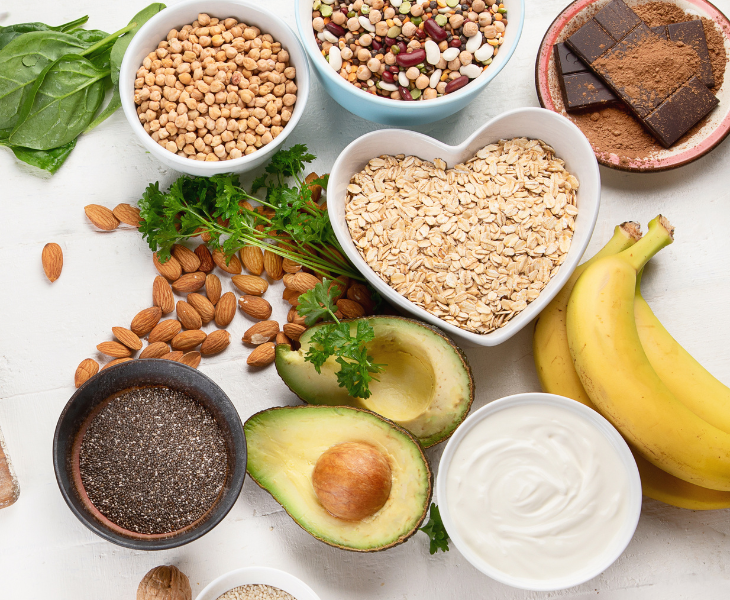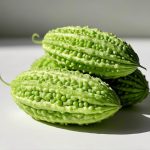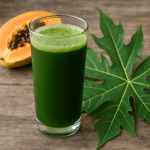Are You Getting Enough Minerals in Your Diet?
Have you ever wondered if your diet provides all the essential minerals your body needs? Minerals are crucial for various bodily functions, from maintaining strong bones and teeth to regulating metabolism and ensuring your muscles and nerves work correctly.
Despite their importance, many people overlook their mineral intake, leading to potential deficiencies that can affect overall health. So, what foods should you include in your diet to ensure you’re getting enough minerals?
In this blog post, we’ll explore incredible mineral-rich foods that you can add to your diet. These nutrient-packed options can help you maintain optimal health, boost energy levels, and prevent common deficiencies.
Ready to give your diet a mineral boost? Let’s dive in!
What Are Minerals and Why Are They Important?
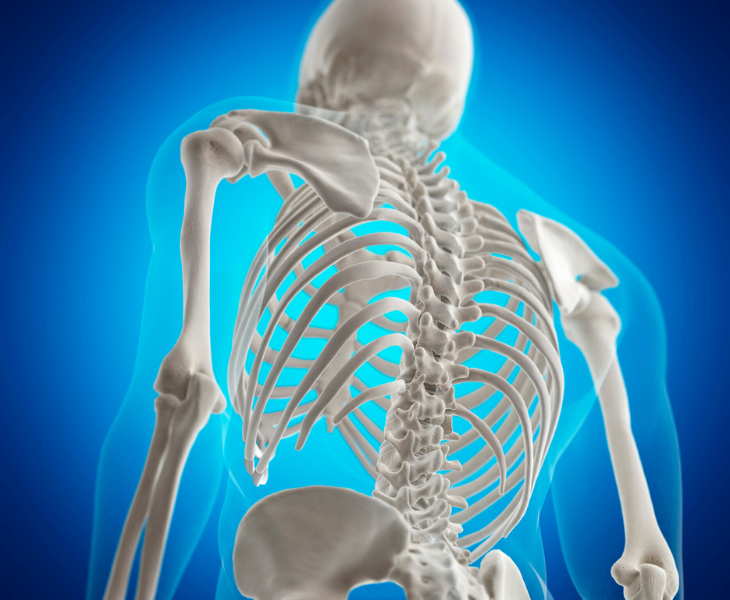
Minerals are inorganic substances that your body needs to function correctly. Unlike vitamins, minerals are not synthesized by the body and must be obtained from your diet. They play vital roles in various bodily processes, including:
- Bone and Teeth Health: Minerals like calcium and phosphorus are key components of bones and teeth.
- Muscle Function: Magnesium and potassium are essential for muscle contraction and relaxation.
- Nervous System Support: Sodium, potassium, and calcium help transmit nerve impulses.
- Metabolism and Energy Production: Iron, zinc, and magnesium play roles in enzyme function and energy production.
Ensuring you have an adequate intake of these minerals is crucial for maintaining overall health and preventing chronic diseases.
1. Spinach: A Powerhouse of Magnesium and Iron
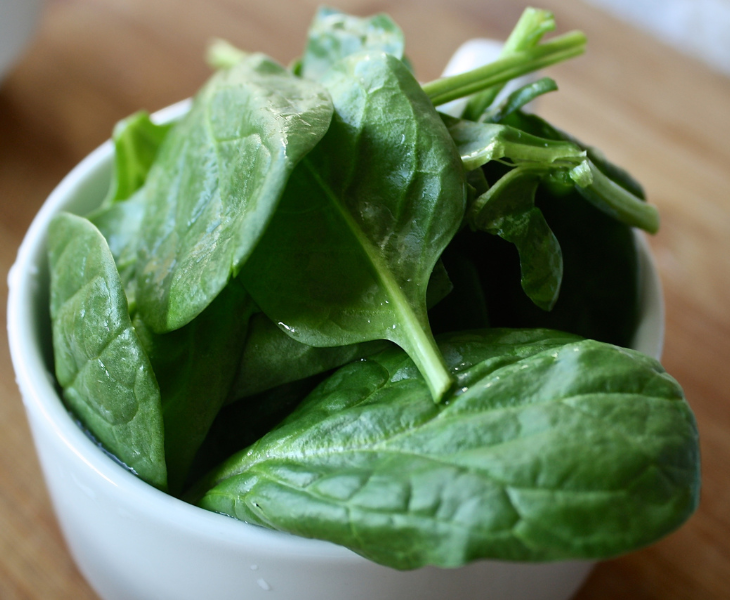
Spinach is a leafy green vegetable that’s packed with minerals, particularly magnesium and iron. Magnesium is essential for over 300 biochemical reactions in your body, including energy production and muscle function. Iron is crucial for the production of hemoglobin, the protein in red blood cells that carries oxygen throughout your body.
How to Include in Your Diet: Add spinach to salads, smoothies, or sauté it as a side dish to boost your mineral intake.
Pro Tip: Pair spinach with vitamin C-rich foods like bell peppers or citrus fruits to enhance iron absorption.
2. Nuts and Seeds: Rich in Magnesium, Zinc, and Copper
Nuts and seeds are not only tasty but also packed with essential minerals. Almonds, cashews, and sunflower seeds are particularly high in magnesium, zinc, and copper. Zinc plays a crucial role in immune function, wound healing, and DNA synthesis, while copper is important for iron metabolism and the formation of red blood cells.
How to Include in Your Diet: Snack on a handful of nuts, sprinkle seeds over your yogurt or salads, or add them to your smoothies.
Pro Tip: Opt for raw or lightly roasted nuts to maximize their mineral content.
3. Dairy Products: High in Calcium and Phosphorus
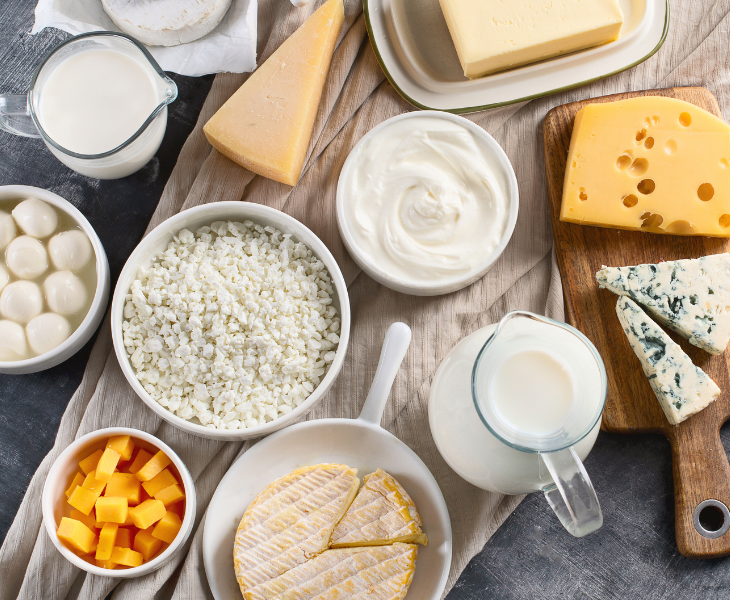
Dairy products like milk, cheese, and yogurt are excellent sources of calcium and phosphorus, two minerals essential for bone health. Calcium is vital for maintaining strong bones and teeth, while phosphorus plays a key role in bone formation and energy production.
How to Include in Your Diet: Enjoy a glass of milk, a serving of yogurt, or a slice of cheese as part of your daily meals.
Pro Tip: Choose low-fat or fat-free options to reduce calorie intake while still getting essential minerals.
4. Lentils: A Great Source of Iron and Potassium
Lentils are a type of legume that is not only rich in protein and fiber but also packed with essential minerals like iron and potassium. Potassium helps regulate fluid balance, muscle contractions, and nerve signals, while iron is vital for carrying oxygen in the blood.
How to Include in Your Diet: Cook lentils in soups, stews, or salads for a nutrient-dense meal.
Pro Tip: Lentils are a great plant-based iron source, making them especially important for vegetarians and vegans.
5. Shellfish: Abundant in Zinc and Selenium
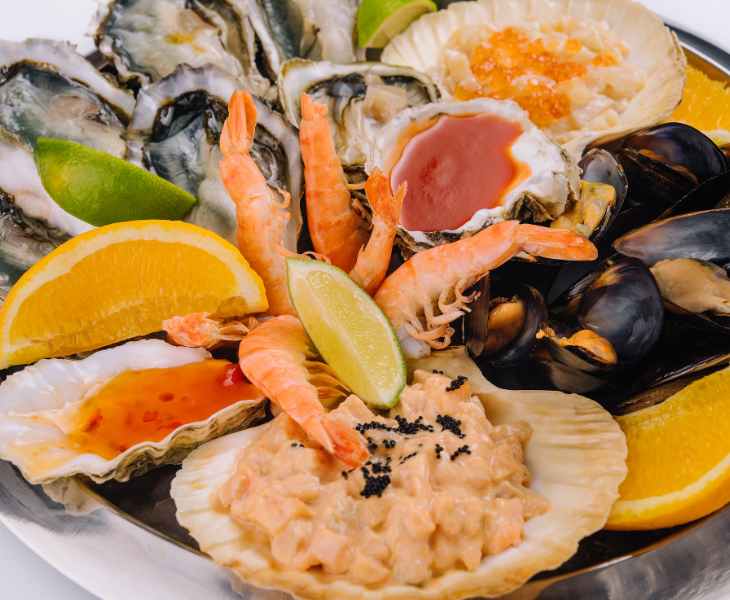
Shellfish, such as oysters, clams, and shrimp, are some of the best sources of zinc and selenium. Zinc is crucial for immune function, while selenium acts as an antioxidant, protecting your cells from damage.
How to Include in Your Diet: Enjoy shellfish as part of your main meal, whether it’s grilled, steamed, or added to pasta dishes.
Pro Tip: Be mindful of sourcing shellfish sustainably to protect marine ecosystems.
6. Bananas: Your Go-To for Potassium
Bananas are widely known for their high potassium content, which is essential for maintaining proper heart function, muscle contractions, and fluid balance in the body. Potassium is also critical for preventing muscle cramps and lowering blood pressure.
How to Include in Your Diet: Eat bananas as a quick snack, blend them into smoothies, or add them to your morning oatmeal.
Pro Tip: Pair bananas with a source of healthy fat, like almond butter, to keep you fuller for longer.
7. Dark Chocolate: A Delicious Source of Iron and Magnesium
Dark chocolate isn’t just a treat—it’s also a good source of essential minerals like iron and magnesium. Magnesium supports nerve and muscle function, while iron is crucial for oxygen transport in the blood.
How to Include in Your Diet: Enjoy a small piece of dark chocolate as a dessert or mix it into homemade trail mix.
Pro Tip: Choose dark chocolate with at least 70% cocoa content to maximize mineral intake and limit added sugars.
8. Avocados: Packed with Potassium and Magnesium
Avocados are not only creamy and delicious but also rich in potassium and magnesium. These minerals are essential for heart health, helping to regulate blood pressure and prevent cardiovascular diseases.
How to Include in Your Diet: Add avocado slices to salads, spread it on toast, or blend it into smoothies.
Pro Tip: Avocados are high in healthy fats, which help with the absorption of fat-soluble vitamins like vitamin A, D, E, and K.
9. Whole Grains: High in Magnesium and Selenium
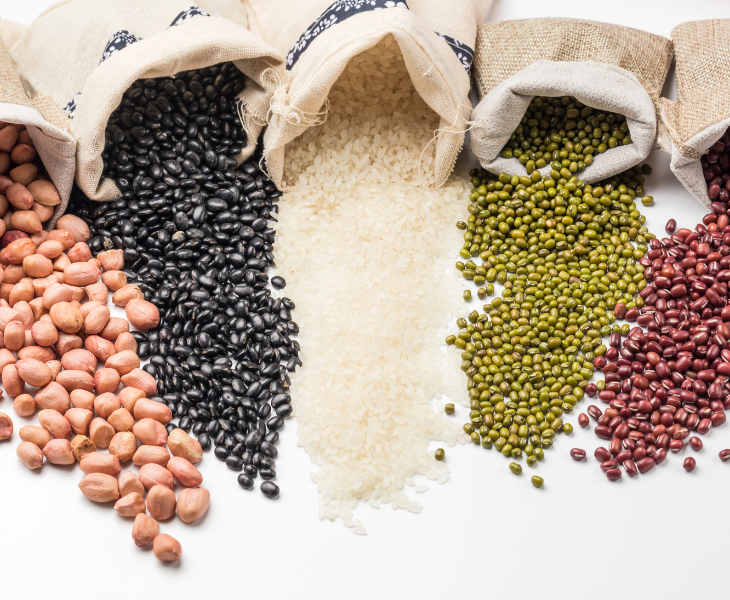
Whole grains like quinoa, brown rice, and oats are excellent sources of magnesium and selenium. Magnesium is crucial for energy production and muscle function, while selenium is an antioxidant that supports immune health.
How to Include in Your Diet: Swap refined grains with whole grains in your meals, such as using brown rice instead of white rice or whole grain bread instead of white bread.
Pro Tip: Whole grains are also high in dietary fiber, which is essential for digestive health.
10. Eggs: A Nutrient-Dense Source of Iron and Phosphorus
Eggs are a versatile and affordable source of essential minerals, including iron and phosphorus. Iron is necessary for the production of hemoglobin, while phosphorus is important for bone health and energy production.
How to Include in Your Diet: Enjoy eggs boiled, scrambled, or poached as part of your breakfast or add them to salads and sandwiches.
Pro Tip: Don’t skip the yolk—it’s where most of the minerals and nutrients are concentrated.
Start Adding These Mineral-Rich Foods to Your Diet Today!
Incorporating these 10 mineral-rich foods into your daily diet is a simple yet effective way to ensure you’re meeting your body’s nutritional needs. From spinach and nuts to dairy products and eggs, these foods provide a wide range of essential minerals that support various bodily functions, including bone health, immune function, and energy production.
Are you ready to enhance your diet with these mineral-packed foods? Start today by adding one or more of these options to your meals and experience the benefits of a well-balanced, nutrient-rich diet. For more tips on improving your nutrition and overall wellness, check out this comprehensive guide on healthy eating.
If you found this guide helpful, don’t forget to share it with friends and family. Also, subscribe to our newsletter for more tips on maintaining a healthy lifestyle and boosting your overall well-being
By focusing on a variety of foods that are rich in essential minerals, you can create a well-rounded diet that supports your overall health and well-being. Remember, the key to a healthy diet is balance, so make sure to incorporate these foods alongside other nutrient-dense options.

